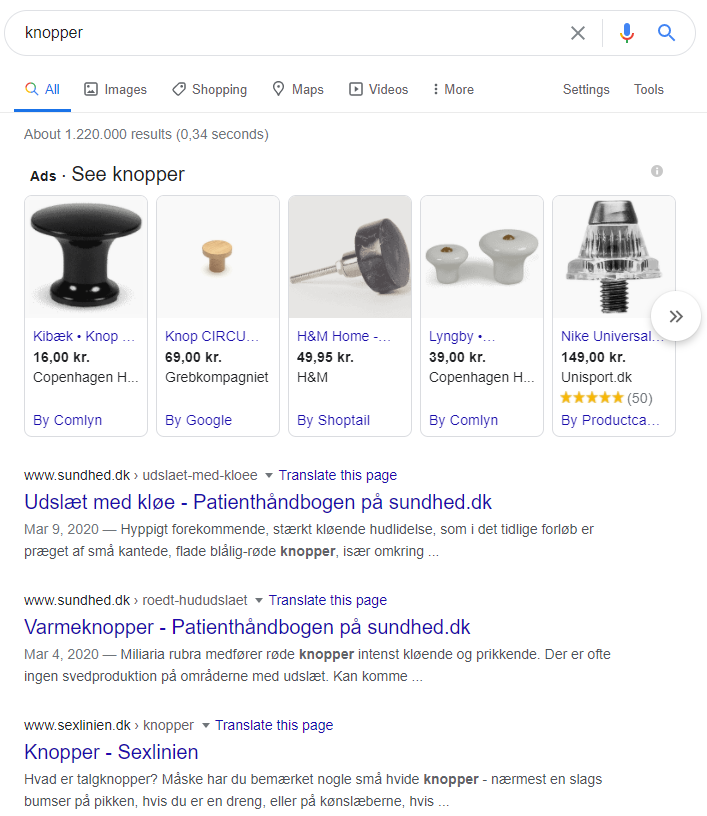Query
Needs
Analysis
A Query Needs Analysis (QNA) is the analysis of the needs represented by a query. This kind of analysis and the answer may sometimes be referred to as:
... and so on.
In the articles above, the exact words and description of the subject matter varies.
Here I will help you leverage the offerings you already have and make sure they get exposed to the right people, at the right time.
To me this is not rocket science; it is just how I approach Search Engine Optimisation when onboarding new clients.
Later on we switch to "regular" keyword analysis, once we have optimised the existing pages.
Why make a QNA?
Here is an extreme example of what can happen in the SERP, when you fail at doing a Query Needs Analysis:

[knopper] has two meanings in Danish:
- furniture handles (paid results)
- bumps on the skin or genitals caused by a medical condition (organic results)
Google has gathered enough data to know that most people searching for [knopper] want the organic results, which present possible explanations for and information on what to do, in the case you have this symptom.
As someone familiar with Google Ads/Shopping, I know how easy it is to get stuck inside your favourite keyword research tool and spot a high volume keyword that you want to bid on.
To prevent this from happening, we perform the QNA and here is how.
The 3 steps of the QNA
- Step 1: Identify needs you fulfill
- Step 2: Find matching keywords
- Step 3: Search Engine Optimisation
The Query Needs Analysis process
Step 1: Identify the needs that you fulfill completely
The needs that you fulfill completely requires you to be honest about your business offerings and this may just be the most difficult part of this process, so read carefully and do let me know if I haven't explained it in a way you understand.
Your business sells what?
With
Step 2: Identify keywords which match your offering
.
Step 3: Search Engine Optimisation
Having completed step 1 and 2, you are now armed with the knowledge required to optimise your page.
From this point forward you can return to performing SEO as usual, including, but not limited to:
- Title
- Description
- Headings
- Text
- Images
- Breadcrumbs
- Content structure
- Structured content
For more information on Search Engine Optimisation in general, click here!